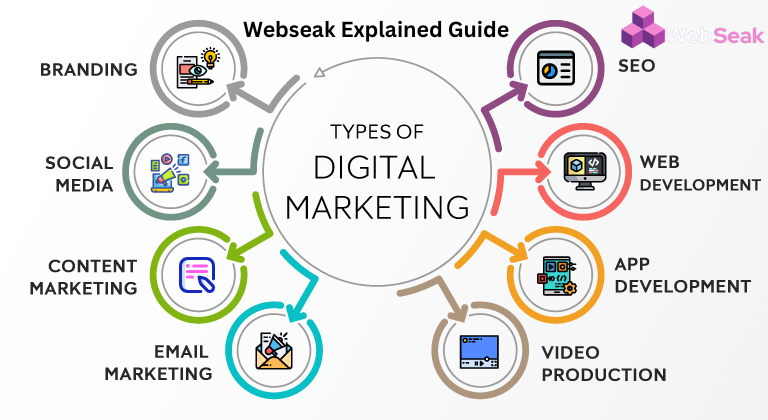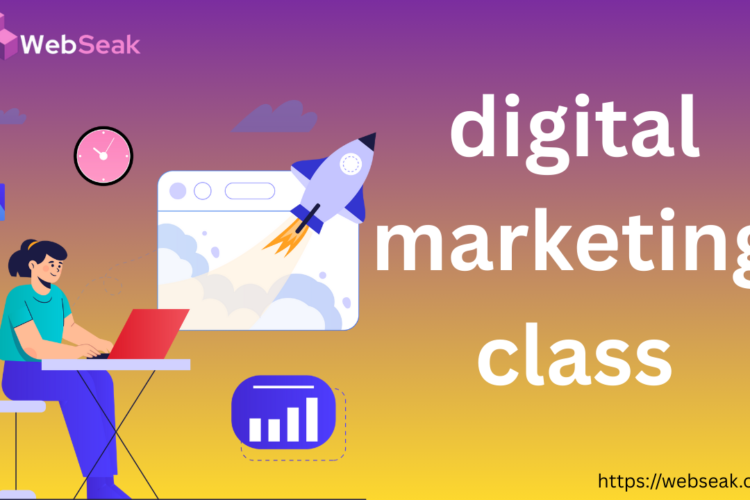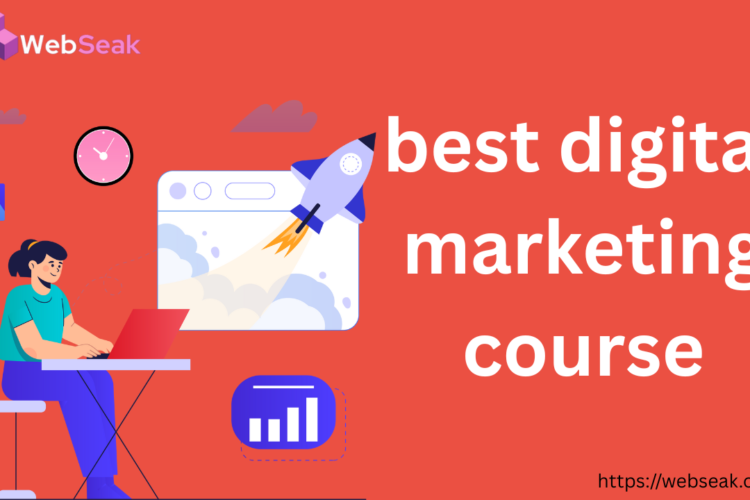
Digital marketing is no longer a choice but a necessity for businesses aiming to thrive in the online space. As technology evolves and consumer behavior shifts to digital platforms, understanding the types of digital marketing is essential for building strong brand awareness, generating leads, and driving conversions.
At Webseak, we help brands decode the wide range of digital marketing channels so they can create personalized strategies that fit their audience, goals, and budget. Whether you are just getting started or looking to improve your online marketing approach, this guide will walk you through the most effective types of digital marketing.
Table of Contents
What Is Digital Marketing
Digital marketing is the practice of promoting products, services, or brands through digital channels such as websites, social media, email, and search engines. Unlike traditional marketing, digital methods offer real-time tracking, data analytics, and a wider reach at a lower cost.
Understanding the different types of digital marketing allows you to tailor your strategy for better results and long-term success.
Why Understanding the Types of Digital Marketing Matters
Every business is different, and not all digital strategies work the same for every industry. Knowing the available digital marketing methods helps you:
- Choose the right platform for your target audience
- Optimize your marketing budget
- Build campaigns with measurable goals
- Enhance your brand visibility and authority
- Stay competitive in a digital world
Now let’s break down the most important types of digital marketing that every business should consider.
1. Search Engine Optimization SEO
SEO is the foundation of digital marketing. It refers to the process of improving your website to increase its visibility in search engine results. When done right, SEO can drive consistent and organic traffic to your site.
Key Elements of SEO
- Keyword research and optimization
- On-page optimization including meta tags and content structure
- Technical SEO for site speed and mobile friendliness
- Backlink building to gain domain authority
- Local SEO for attracting nearby customers
Why it matters
SEO helps businesses build long-term online presence and credibility while reducing dependency on paid ads.
2. Pay Per Click Advertising PPC
PPC is a form of paid advertising where you pay each time someone clicks on your ad. It is one of the fastest ways to appear on search engines and drive targeted traffic.
Popular PPC Platforms
- Google Ads
- Bing Ads
- Facebook and Instagram Ads
- LinkedIn Ads
- YouTube Video Ads
Why it matters
PPC offers immediate visibility and allows businesses to control their ad spend while reaching highly specific customer segments.
3. Social Media Marketing
Social media marketing uses platforms like Facebook, Instagram, Twitter, LinkedIn, and others to promote content, engage followers, and drive traffic.
Common Social Media Activities
- Creating branded content
- Running paid promotions and contests
- Engaging with followers through comments and messages
- Partnering with influencers
Why it matters
Social media is essential for building brand loyalty, increasing visibility, and interacting with your audience in real-time.
4. Content Marketing
Content marketing focuses on creating and distributing valuable content that attracts and retains a clearly defined audience. This type of marketing is non-intrusive and focused on delivering helpful information rather than selling.
Types of Content
- Blog posts
- Articles
- Infographics
- Videos
- Ebooks and whitepapers
Why it matters
Content marketing builds trust, improves SEO, and helps guide customers through the decision-making process.
5. Email Marketing
Email marketing remains one of the most cost-effective digital channels. It allows you to reach customers directly in their inbox with personalized messages.
Examples of Email Campaigns
- Welcome emails
- Newsletters
- Promotional offers
- Product or service updates
- Cart abandonment reminders
Why it matters
Email marketing nurtures relationships, encourages repeat business, and delivers a high return on investment.
6. Affiliate Marketing
Affiliate marketing is a performance-based strategy where third parties promote your product or service in exchange for a commission on sales.
How It Works
- Affiliates join your program
- They share your links through blogs, videos, or social posts
- You pay them a percentage of the sale when a user purchases through their link
Why it matters
It is a low-risk method of reaching new audiences while only paying for results.
7. Influencer Marketing
Influencer marketing involves collaborating with social media personalities who have a loyal and engaged audience. They promote your product to their followers, creating trust and driving conversions.
Types of Influencers
- Nano influencers with under ten thousand followers
- Micro influencers with up to one hundred thousand followers
- Macro influencers and celebrities
Why it matters
Consumers often trust influencers more than traditional advertisements, making it an effective strategy for brand awareness.
8. Video Marketing
Video marketing is the use of videos to promote your brand, product, or message. Platforms like YouTube, Instagram, and Facebook have made video a dominant form of content.
Types of Marketing Videos
- Product demos
- Customer testimonials
- Explainer videos
- Behind the scenes clips
Why it matters
Videos increase engagement, help with SEO, and provide a powerful way to communicate your brand’s story.
9. Mobile Marketing
Mobile marketing focuses on reaching customers on their smartphones or tablets through apps, SMS, push notifications, and mobile-friendly websites.
Strategies in Mobile Marketing
- App-based marketing
- In-game mobile ads
- Location-based offers
- Text message marketing
Why it matters
With most consumers accessing content through their phones, mobile marketing ensures your brand stays connected and accessible.
10. Web Analytics and Conversion Rate Optimization
While not a marketing channel itself, analytics is vital for understanding how users interact with your content and website. Optimization ensures your marketing is effective and data-driven.
Analytics Tools
- Google Analytics
- Hotjar
- SEMrush
- HubSpot
Why it matters
By analyzing your data, you can improve website performance, reduce bounce rates, and increase your return on investment.
Final Thoughts
There is no one-size-fits-all approach to digital marketing. Each type serves a different purpose and can be more effective depending on your business goals, audience, and industry. By combining multiple channels and aligning them with a strategic plan, your business can build a strong digital presence and scale faster than ever.
Why Choose Webseak for Digital Marketing Strategy
At Webseak, we help businesses understand and implement the right mix of digital marketing strategies tailored to their goals. Whether you want to grow your brand, increase sales, or reach new customers, our team of experts is here to guide you every step of the way.
Webseak Your Trusted Digital Growth Partner
Contact Webseak today to build a data-driven digital marketing plan that includes SEO, content, paid ads, social media, and everything in between. Let’s grow your brand the smart way.


